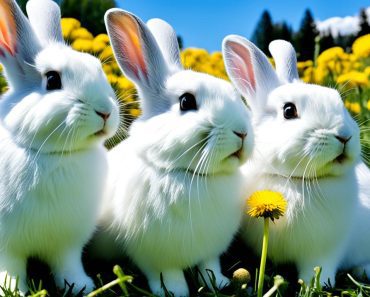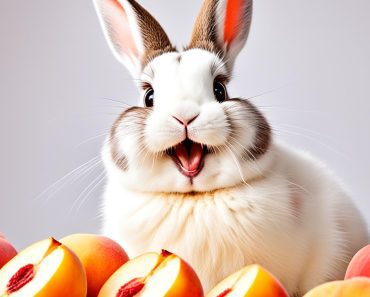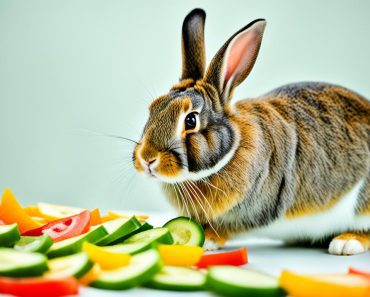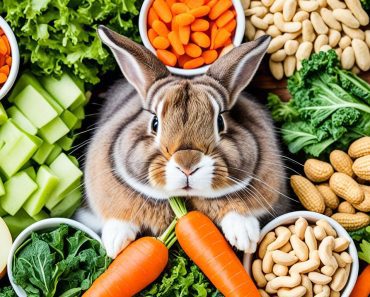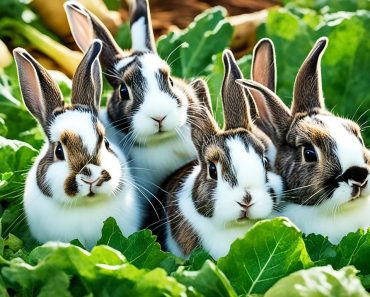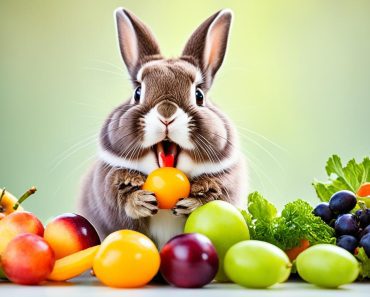As a rabbit guardian, I am always mindful of what I feed my furry friend. Rabbits have a delicate digestive system, and it’s important to be cautious about the foods we offer them. One common query that many rabbit owners have is whether it is safe for rabbits to eat peas. In this article, we’ll explore the health impact of peas on rabbits and their role in a rabbit’s diet.
Peas are safe for rabbits to eat in moderation. They can be included as part of a well-balanced diet for rabbits and provide various health benefits. However, it’s crucial to note that peas should not be the main staple of a rabbit’s diet. Rabbits are herbivores and require a varied diet that includes a combination of leafy greens, vegetables, and high-quality Timothy hay.
Can Rabbits Eat Peas? Yes, but should be served moderately.
- Peas are safe for rabbits to eat, but they should be fed in moderation.
- Rabbits require a well-balanced diet that includes a variety of fresh vegetables and leafy greens.
- Peas should not be the main staple of a rabbit’s diet and should be offered alongside other foods.
- It’s important to introduce new foods gradually and monitor the rabbit’s response to ensure they tolerate them well.
- Consulting with a veterinarian is always recommended to ensure your rabbit’s specific nutritional needs are met.
Safe Vegetables for Rabbits: Leafy Greens and Other Vegetables
Rabbits can enjoy a wide variety of vegetables as part of their diet. Alongside peas, there are several safe vegetables for rabbits that provide essential nutrients and fiber, supporting a healthy digestive system and overall well-being.
- Leafy greens such as chicory, lettuce, endive, and radicchio are excellent options for rabbits. They are packed with vitamins and minerals that contribute to their overall health.
- Celery, cucumber, and bell peppers are also safe vegetables for rabbits. These crunchy options offer hydration and additional nutrients.
- Fennel, turnips/swedes, parsnips, and carrots are other vegetables that rabbits can enjoy in moderation. They provide variety and contribute to a well-balanced diet.
When introducing new vegetables to a rabbit’s diet, it is important to do so gradually and monitor their response. This helps ensure that the rabbits tolerate the vegetables well without any adverse effects. It’s always a good idea to consult with a veterinarian for specific dietary recommendations tailored to your rabbit’s needs.
Remember, rabbits should have a diverse diet that includes a combination of fresh vegetables and high-quality Timothy hay. This will ensure they receive all the essential nutrients they need for optimal health.
Fruits and Vegetables to Avoid: Potential Health Risks
While peas are generally safe for rabbits to eat, it’s important to be aware of other fruits and vegetables that can pose potential health risks to our furry friends. Rabbits have sensitive digestive systems and certain foods can cause gastrointestinal issues, bloating, or even toxicity. To ensure the well-being of your rabbit, it’s best to avoid feeding them the following fruits and vegetables:
- Avocados
- Corn
- Legumes (such as broad beans and kidney beans)
- Iceberg lettuce
- Onions
- Potatoes
- Rhubarb
- Wild-grown mushrooms
These foods have the potential to disrupt your rabbit’s digestion and can lead to gastrointestinal stasis, bloating, or other health issues. It’s important to prioritize the well-being of your rabbit and avoid feeding them these potentially harmful foods, even in small quantities.
Remember, rabbits have specific dietary needs, and it’s essential to provide them with a well-balanced and appropriate diet to maintain their overall health. If you have any concerns or questions about what foods are safe for your rabbit, it’s always best to consult with a veterinarian who specializes in rabbit care.
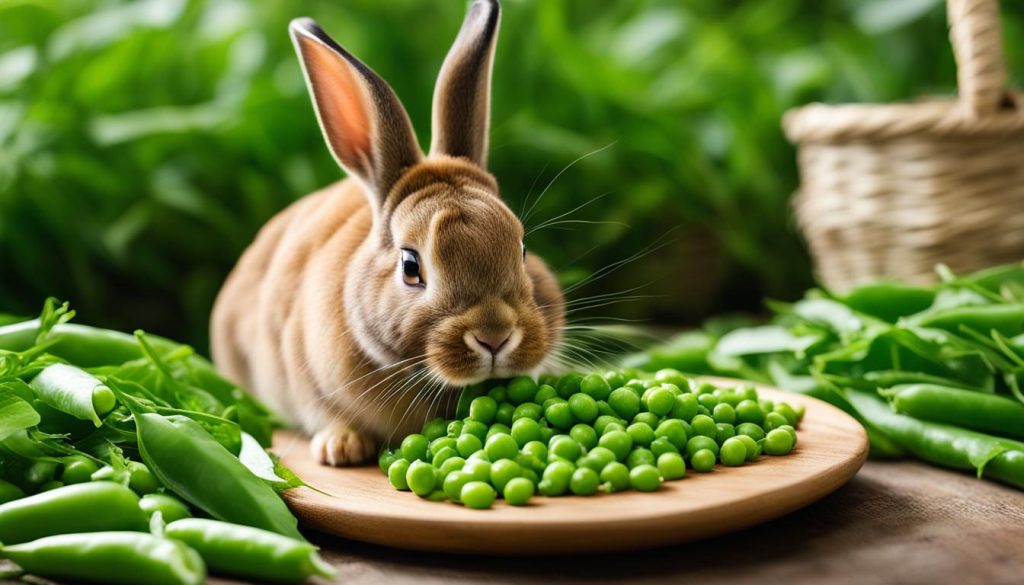
Introducing Fresh Foods to a Rabbit’s Diet
When it comes to introducing fresh foods to a rabbit’s diet, including fresh peas, it’s essential to take it slow and steady. Start by offering small amounts of fresh peas and closely observe your rabbit’s response. If they tolerate the peas well, you can gradually increase the amount within their diet.
However, it’s crucial to remember that fresh foods, including peas, should not replace the main staple of a rabbit’s diet, which is typically high-quality Timothy hay and fresh water. Instead, fresh foods should be viewed as a supplement to their primary food source, providing additional nutrients and variety.
In addition to fresh peas, it’s important to offer a variety of other fresh vegetables and leafy greens to ensure a well-balanced diet. This can include vegetables like carrots, radishes, and leafy greens such as kale and parsley.
Feeding fresh foods to your rabbit in moderation is key. It’s important not to overfeed or rely solely on fresh peas or any other specific vegetable. Variety is key to meeting your rabbit’s nutritional needs and promoting their overall health.
Remember to always consult with a veterinarian before making any significant changes to your rabbit’s diet. They can provide guidance specific to your rabbit’s individual needs and help ensure they are receiving a balanced and nutritious diet.
The Importance of a Balanced Diet for Rabbits
A balanced diet is crucial for the health and well-being of rabbits. While peas can be included as part of a rabbit’s diet, they should not be the sole or main source of nutrition. Rabbits require a diet that is primarily made up of high-quality Timothy hay, which provides essential fiber for their digestion.
Offering a variety of fresh vegetables, including peas, can supplement their hay intake and provide additional nutrients and variety. However, it is important to remember that fresh vegetables should not replace the main staple of a rabbit’s diet, which is Timothy hay.
By incorporating a mix of leafy greens and other vegetables into a rabbit’s diet, owners can ensure that their furry companions receive a wide range of nutrients for optimal health. Leafy greens such as parsley, cilantro, and dandelion greens can provide essential vitamins and minerals, while vegetables like carrots and bell peppers can offer additional flavors and texture.
It is important to introduce new foods gradually and monitor the rabbit’s response. If the rabbit tolerates peas well, they can be included in their diet. Remember to always wash fruits and vegetables thoroughly before offering them to remove any potential pesticides or dirt. Remove any seeds or stems that may present a choking hazard for rabbits.
Providing a balanced diet, including a combination of Timothy hay and fresh vegetables like peas, is crucial for maintaining a rabbit’s overall health and well-being. It is always best to consult with a veterinarian for specific dietary recommendations to ensure that your rabbit’s nutritional needs are met.
Benefits of a Balanced Diet for Rabbits:
- Provides essential fiber for proper digestion
- Offers a wide range of nutrients for optimal health
- Supports overall well-being and energy levels
- Promotes dental health and wearing down of teeth
- Helps prevent obesity and related health issues
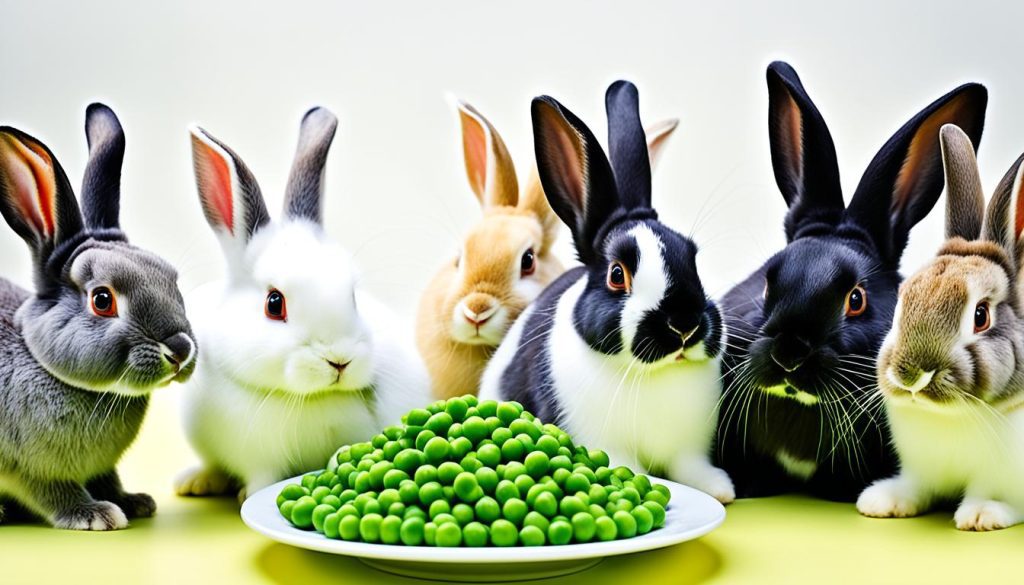
“A balanced diet is the key to keeping rabbits healthy and happy. By offering a variety of high-quality Timothy hay and fresh vegetables, including peas, owners can provide the essential nutrients rabbits need for optimal health.”
Tips for Feeding Fresh Foods to Rabbits
When it comes to feeding fresh foods to rabbits, including peas, it is essential to prioritize their health and well-being. Here are some guidelines to follow:
-
Start with small amounts: Begin by offering a small portion of peas and observe how your rabbit tolerates them. If they show no signs of digestive discomfort, you can gradually increase the serving size.
-
Thoroughly wash fruits and vegetables: Before offering any fresh produce to your rabbit, make sure to wash them thoroughly. This helps remove potential pesticides or dirt that may be present.
-
Remove seeds and stems: Check the peas for any seeds or stems that could pose a choking hazard for your rabbit. Remove them before serving.
-
Provide variety: Alongside peas, offer a variety of other fresh vegetables and leafy greens to ensure a balanced diet. This provides your rabbit with a range of nutrients for optimal health.
-
Offer fresh water: Always provide access to fresh water for your rabbit. Hydration is crucial for their overall well-being.
-
Monitor health and digestion: Pay close attention to your rabbit’s overall health and digestion when introducing new foods. If you notice any adverse reactions, consult with a veterinarian.
“Feeding fresh foods to rabbits, such as peas, requires care and consideration. Ensuring their portion size, washing produce, removing potential hazards, and offering variety all contribute to a balanced and nutritious diet for your furry friend.”
Conclusion
Rabbits can safely enjoy peas as part of their balanced diet, but it is important to remember that peas should not be the main staple of their diet. It is crucial to provide a variety of other fresh vegetables and leafy greens to ensure that rabbits receive all the necessary nutrients for their optimal health. When introducing fresh foods like peas, it is recommended to start small and gradually increase the serving size if your rabbit tolerates them well.
Monitoring your rabbit for any adverse reactions is essential, and consulting with a veterinarian is always a wise choice when making any dietary changes. They can provide valuable guidance to ensure your rabbit’s specific nutritional needs are being met. Additionally, creating a comfortable and spacious living environment for your rabbit, along with offering plenty of opportunities for exercise, will contribute to their overall health and well-being.
Remember, while peas can be a healthy addition to a rabbit’s diet, it is important to prioritize a diet primarily composed of high-quality Timothy hay. Fresh foods should supplement the hay, providing additional nutrients and variety. By offering a well-balanced diet and practicing proper care, you can ensure that your rabbit enjoys a healthy and fulfilling life.

